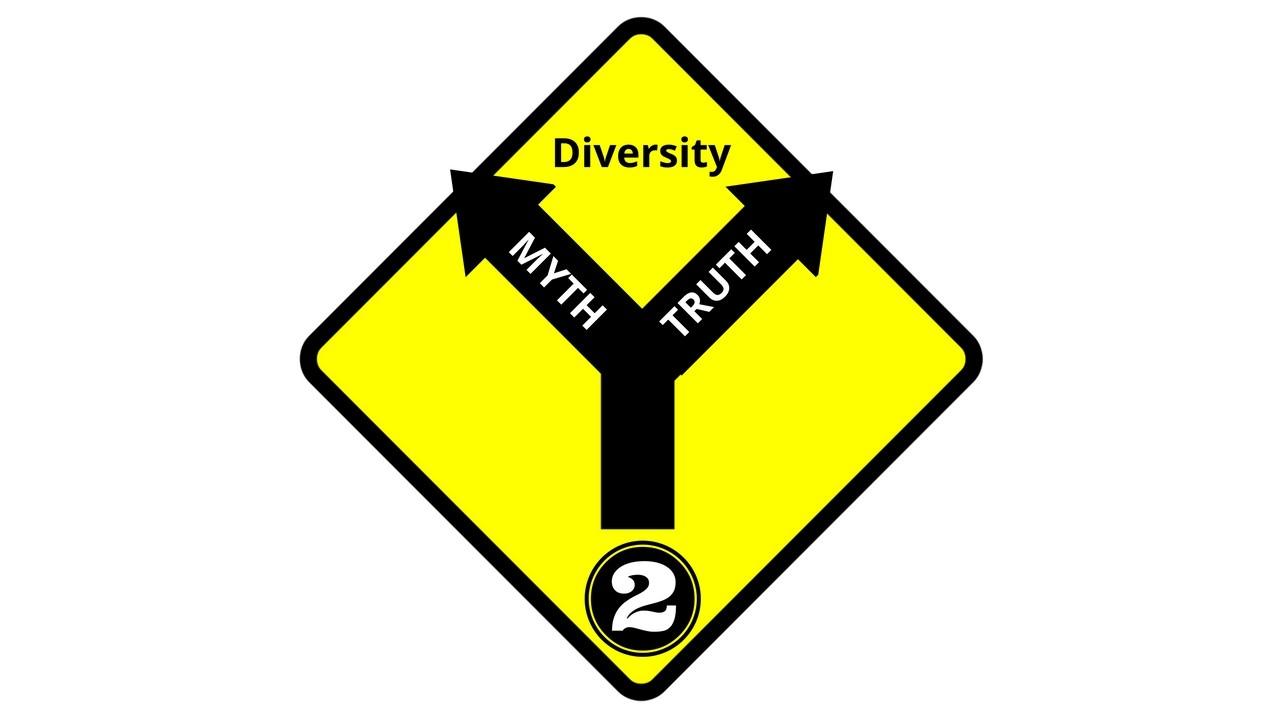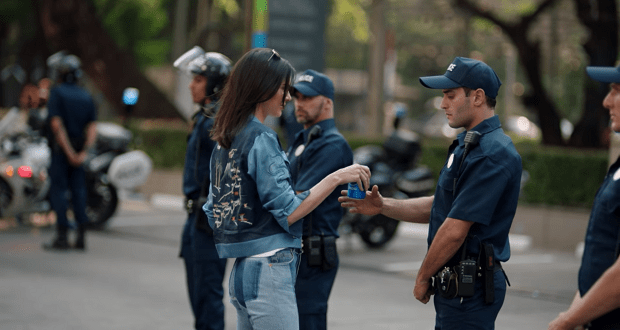
Did you see the new Pepsi ad that featured Kendall Jenner and co-opted scenes from Black Lives Matter-esque protests that ended in a cracked can of Pepsi, a smiling cop, and jubilant marchers? If not, you missed your chance because Pepsi launched the ad, received back-lash, issued a defense of its intent, a subsequent apology and then removed the commercial altogether in a matter of hours. The ad, titled “Jump-in”, has resulted in myriad of takes on the all tone-deaf messaging of Pepsi, centering a white woman celebrity who joined a predominately lighter-in-tone cast of protestors, with a “plot-twist” ending of a riot police officer (minus the riot gear) smiling at the can of Pepsi gifted from generous Jenner. In addition to missing the black women led roots of Black Lives Matter (BLM), the militarized police, brutalized protestors, and any semblance of an explicit cause of the protestors, the ad struck me as a million-dollar version of the viral police videos where officers are seen performing random acts of kindness in poor neighborhoods.
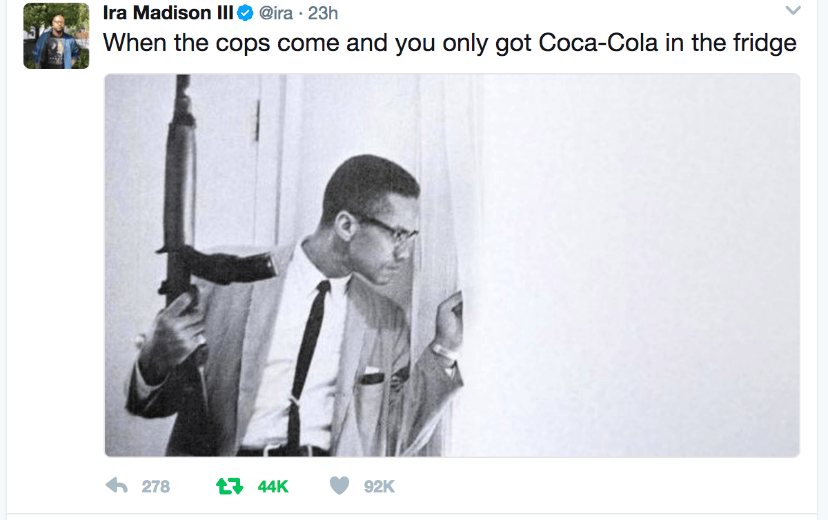
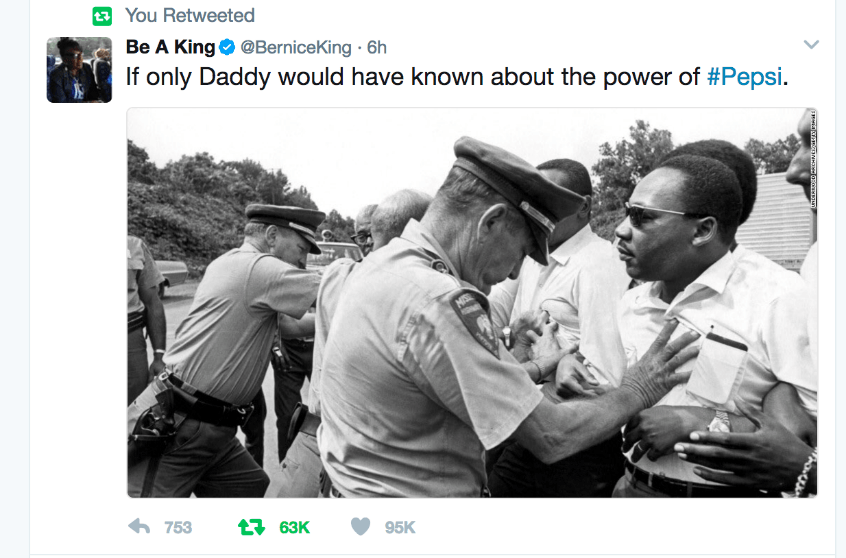
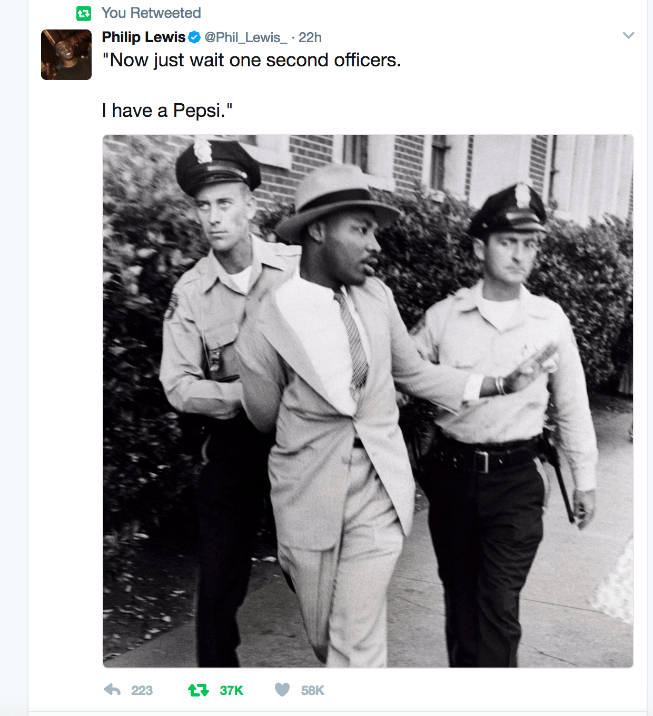
In Pepsi’s initial defense of the ad, they made no apologies for their color-blind attempt at promoting unity. They wrote, “This is a global ad that reflects people from different walks of life coming together in a spirit of harmony, and we think that’s an important message to convey.” But like all attempts at unity at the cost of minimizing differences, this one fell flat. And Black Twitter, the unofficial network of socially conscious black users, made their voices heard in beautiful fashion—with humor, critique, and an appeal to be better. Here are a few of my favorite memes that galvanized so much attention.
Pepsi has since removed the ad and issued an apology.
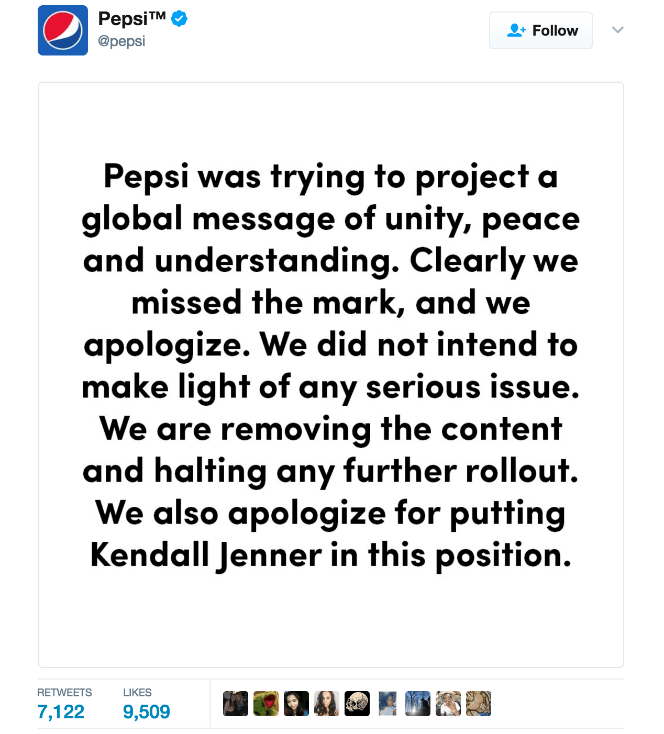
Unsurprisingly, there has been a wave of articles responding to the fiasco with the expected biases of the political media spectrum. But I think the take-away, at least for diversity and inclusion leaders, is the lesson we can learn in this age of socially conscious, diversity driven advertising.
The latest Super Bowl was unprecedented in terms of corporate brands stepping out, or in Pepsi’s case “jumping in”, into the risky waters of socially-politically conscious advertising. An Atlantic writer, argues that the Pepsi ad is a success whether the message is accurate or not, or well received or not—following the mantra that all publicity is good publicity. Although advertising effects are notoriously hard to monetize, I’m not sure that’s true in this era of critically conscious consumers. Think of the fallout from Uber recently, or just this week, advertisers are pulling their dollars from Fox News over Bill O’Reilly’s sexual harassment cases.
As the expectations and consciousness of consumers grows, the standards of culturally competent leadership must rise to meet the challenge. This will require more than just “jumping in” to topics, messages, beliefs and values that are not your own. Instead, it will require a deeper diving in to listen to diverse voices of consumers and hire more diverse professionals who can not only stop these disasters before they start—but help to create brands that truly do play a part in creating a more equitable world. As one tweeter reflectively asked, “will Pepsi be donating proceeds from the ad to the ACLU or Black Lives Matter organizations?”—now that would be true corporate courage.

